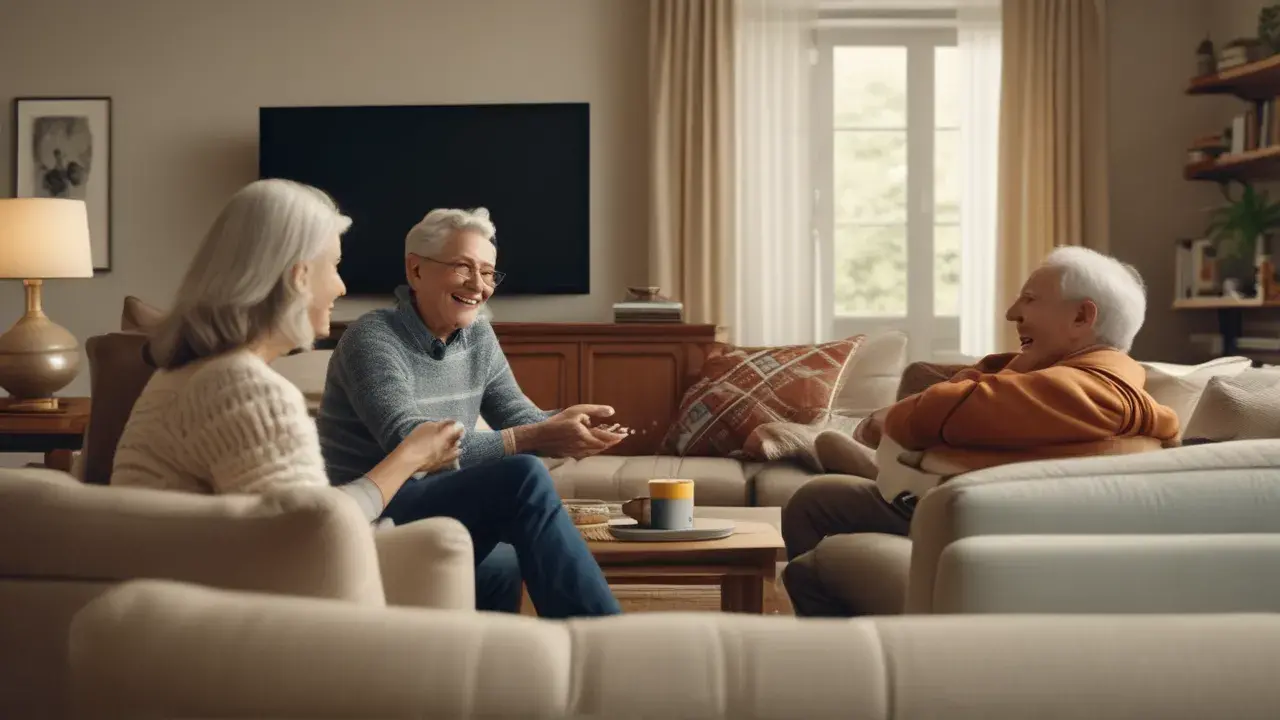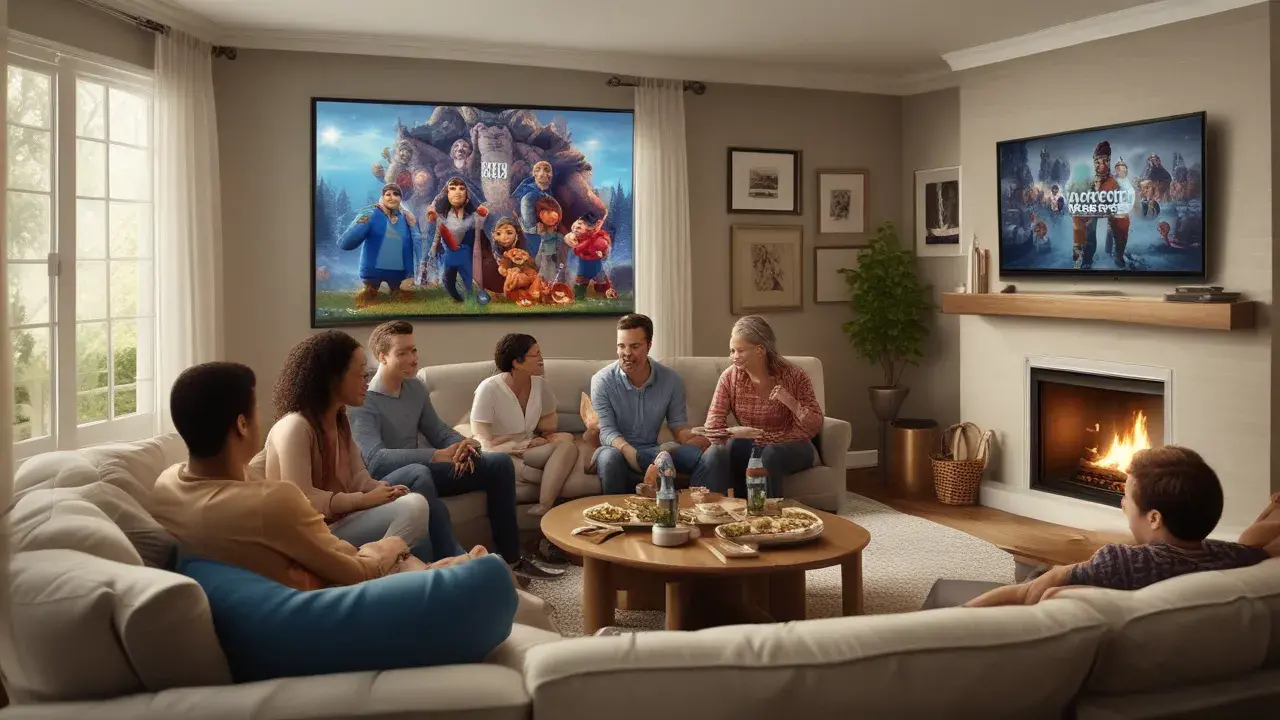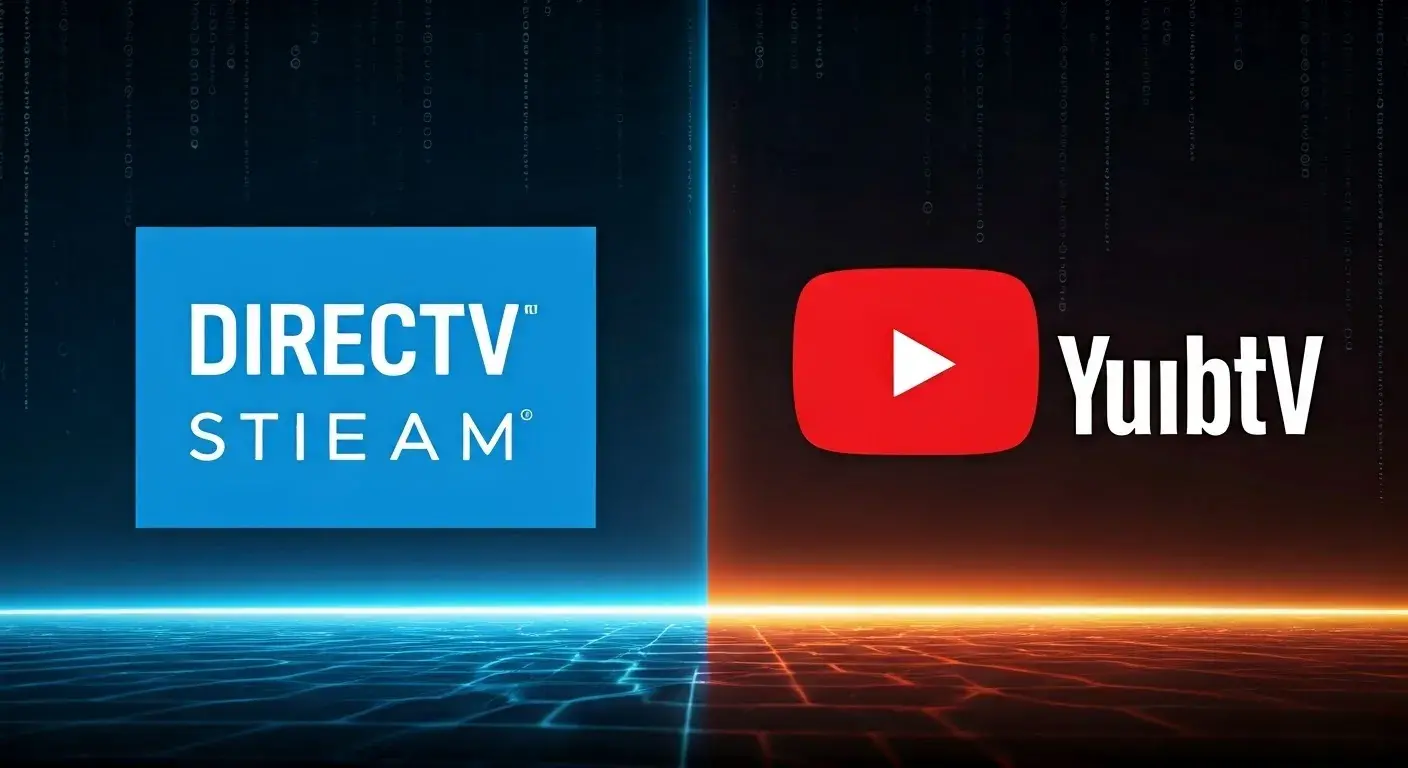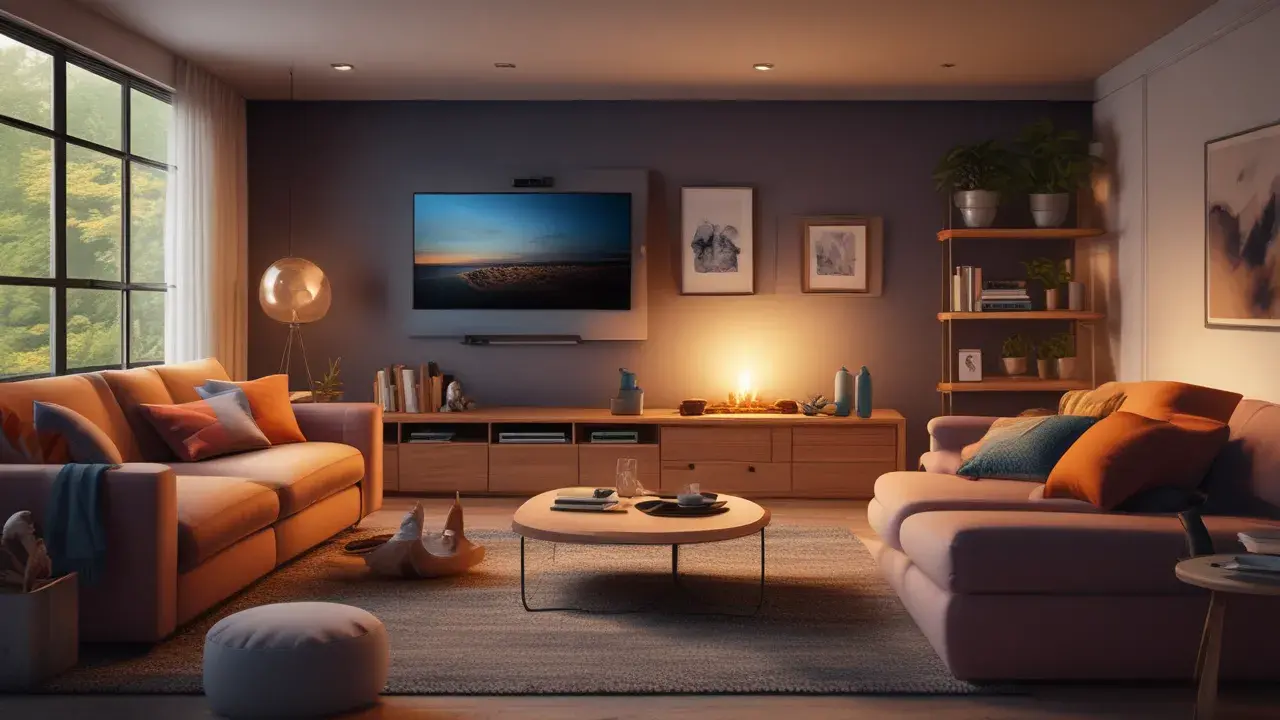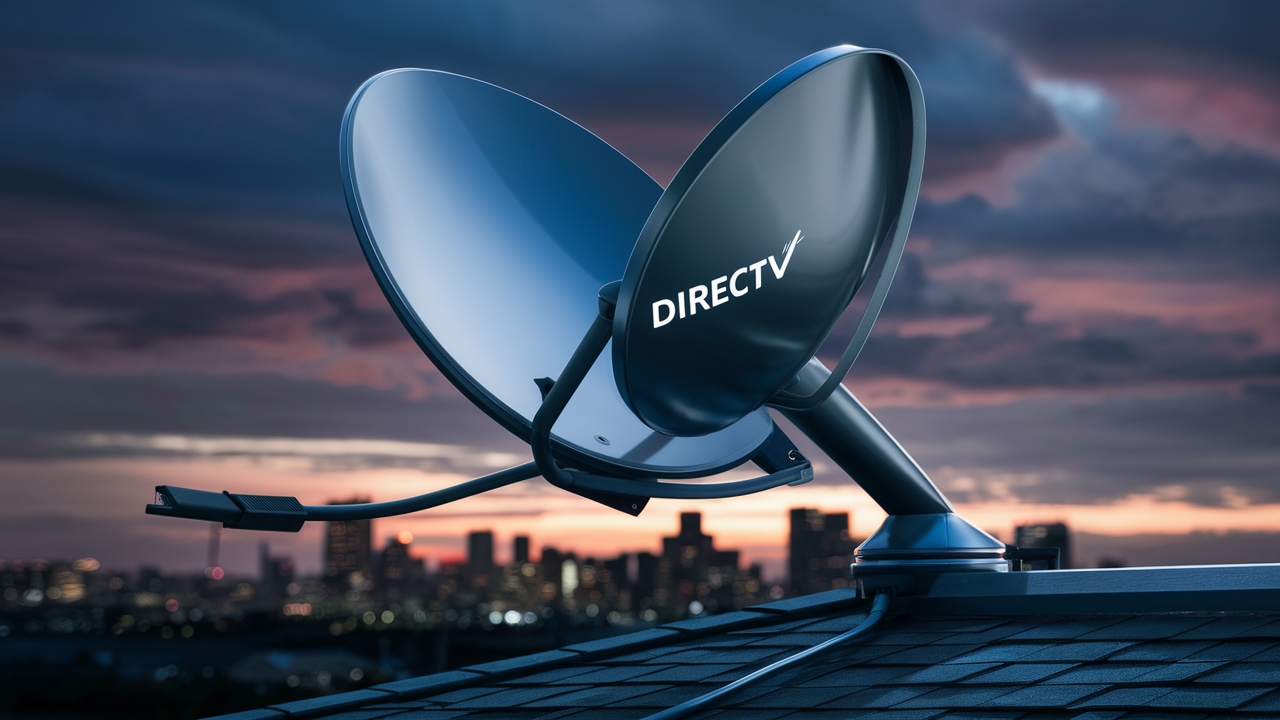
DIRECTV is among one of the most recognized satellite TV service providers in the United States of America it offers hundreds of channels in various packages. While having direct service installed in your home, one of the most common questions is whether the system has to be wired with the coaxial cables connected to the satellite outside. Fortunately, this is not always the case with DIRECTV anymore, as the technology has advanced and now allows for easier installation. You have a few different equipment options available to select from which will dictate whether or not hardwiring is needed.
What do they mean when they say that DIRECTV is hardwired?
When we sometimes say that DIRECTV has to be ‘hardwired’ this is the actual coaxial cable that runs from your satellite dish which is located outside your house to your DIRECTV receiver inside the house. The coaxial cable that connects the dish with the equipment on the interior also transmits both signal and power. In other words, if your DIRECTV boxes were not connected to a coaxial line, they wouldn’t even be able to get the signals from the satellite, let alone the power needed for operation.
Having hardwired was mandatory for system requirements earlier to DIRVEVT because it offered the most secure path for signal connectivity and power supply to the receivers. However, new types of DIRECTV equipment are wireless and broadband internet technologies, which made it possible to set up installations without physically wiring them.
Here are some possible scenarios why you may want DIRECTV hardwired:
While hardwiring isn't always a necessity anymore with DIRECTV equipment alternatives now available, there are a few reasons why you still may want to have your system hardwired if possible:
- Reliability – Physical cables present in satellite networks are more reliable than wireless signals and cannot be interfered with or cut off. One drawback of wireless boxes is that they can occasionally lose signal in very bad weather.
- HD Picture Quality – Since the signal acquisition employs a coaxial-based satellite feed, it usually comes out with a clearer High-definition picture quality than the internet-based broadcasts.
- No Dependence on the Internet – Unlike IP systems, hardwired systems do not need the Internet and that means that you can watch your favorite shows on DIRECTV even when your internet connection is down.
- Availability – Some of the DIRECTV receiver models and features may not be available in the wireless equipment line or may only be available if connected to a wired system.
So if absolute stability, the best quality of HD video, and resistance to Internet problems come to the foreground, then using a wired topology is still preferable to wireless devices.
DIRECTV Packages That Don’t Require Installing Coaxial Cables
The main reason that you no longer always need to hard wire DIRECTV is because of new options of getting satellite TV through your existing home Internet. These are commonly referred to as IP or internet-based boxes and function similarly to traditional satellite boxes but the video feed is received via internet-based delivery rather than directly through a coaxial cable line.
Here are the main DIRECTV equipment choices available that do not require running new coaxial lines and can function completely wirelessly:
DIRECTV Stream Device
DIRECTV Stream streaming device can also hook up to home Wi-Fi for watching the same DIRECTV channel lineup you would get with a satellite dish outside.
DIRECTV Stream is just a small box that plugs into power and can be connected to the internet via WiFi or an Ethernet cable to the modem/router, just like any other streaming device out there. You don’t have to install a satellite dish or bring in some cables inside your home’s walls. If you live in a rental property such as an apartment, condo, or any other dwelling where a traditional dish cannot be installed, it is an excellent solution.
The only disadvantage is that the channel lineups provided by the channel packages in the DIRECTV Stream are somewhat narrower than in a conventional GENIE HD DVR and satellite from DIRECTV. However, all of the most significant categories of content across entertainment, news, sports, and beyond are there.
WIRELESS GENIE MINI DIRECTV BOX Wireless Genie Mini DVR BOX This Wireless Genie Mini Directv Box has features that differentiate it from the traditional Wireless Genie Mini DVR Box.
For customers who wish to have access to the wide variety of premium channels offered by Directv through a satellite dish outside, then the Wireless Genie Mini is an innovative Directv box that works wirelessly in tandem with your primary Genie DVR.
The Wireless Genie Mini receives programming wirelessly over ‘WiFi’, from the main DVR that can be located in the living room, bedroom, or wherever your coaxial cable line ends inside. This enables you to have wireless DIRECTV connectivity in other rooms while the company does not have to incur the cost of having to install coaxial cables all over the house to connect all the TVs.
Wireless Video Bridge
Like most of the wireless Genie Mini boxes, the DIRECTV Wireless Video Bridge accessories enable users to ‘wirelessly extender’ their coaxial cable connection to another room through wireless fidelity or WiFi.
You just hook up an over-the-air wireless client adapter box alongside your primary DIRECTV receiver using the line coaxial. It connects without wires to a wireless adapter box located by the other television you would like to view DIRECTV. With this wireless transmission relay, you can receive the programming from DIRECTV and have it on other TVs without needing to run coaxial cable directly to each of the TVs.
Wireless DIRECTV setup may not be without some form of disadvantages as outlined below:
While non-hardwired options eliminate the need for installing coaxial cables throughout your home, there are a few downsides to weigh:
- Connectivity Problem – Wireless connectivity is not as stable as a wired connection which may hinder the flow of data. Transmission signal failure or poor wireless connection can obstruct the televised signal.
- Consequently of wireless video streams, it is common for wireless video streams to compress the video feed more than a wired setup through satellite dishes. This may slightly reduce the quality of the pictures in HD mode, but the change is not very significant.
- Internet Dependence – The wireless pieces of equipment for DIRECTV do not come with a cable line that provides satellite signal directly into the home and as a result, they depend on the home’s internet connection. Any disruption of service means no internet and no TV, just to give a short example.
- Possible Equipment Constraints – while DIRECTV wireless video receivers are perfectly adequate and fine for most purposes, they may lack some of the bells and whistles of newer hardwired DVRs. Some of the additional features such as support of the OTA antenna may be missing.
If the clean look of your home’s walls and floors with no new wire runs to 3 rooms is most important, then wireless DIRECTV options do that wonderfully. However, the given tradeoffs between video stability, dependence on internet connection, and possibly constrained features are not as appealing to some customers who are accustomed to conventional hardwired DIRECTV installations.
Are There Wiring Works Even If I Will Let Professional Installations?
For most satellite dishes and coaxial-connected receivers, wiring work is still mostly required in the course of undertaking installations for professional service providers. The installers will then pull a wire from the dish on your roof or wall exterior inside your house to wherever you would wish to have your Genie DVR.
They also bring in the wiring of ethernet to provide internet connectivity features and wire client boxes in other rooms. It does become problematic when running multiple client boxes throughout large homes – as homerun wiring all boxes back to a centrally located splitter or DVR is necessary or the DIRECTV Wireless Video Bridge system.
In other wireless options for instance the Stream or the Genie Mini boxes, professional installation may only require the placement and booting up of devices without requiring wiring inside the home. Of course, the satellite dish mounting and positioning itself do involve some wiring work to ensure everything on the outside is wired appropriately.
The following question may, therefore, be pertinent: Is professional wiring help still worthwhile?
While the wireless Genie Mini system will allow you to save on the direct wire installation in multiple rooms, getting professional installers to wire the coaxial, mount the dishes, make all the external connections, and optimize your external equipment is almost always optimal.
The signal from your satellite dish to your house depends on well-installed wires and connections which minimizes splitter signal losses and bad signal termination. Experienced electrical contractors know how to provide wiring runs effectively and efficiently since they are equipped with the necessary tools and measurement instruments.
Doing some wiring runs on your own can easily lead to signal issues and would be far more difficult to diagnose than if professionals did it right the first time. Do not attempt to do wiring work yourself, especially if you do not have prior experience; let professional DIRECTV technicians handle the wiring for the best result.
Consideration of Wired or Wireless Installations in DIRECTV Systems
In both regards, towards the end of the day, you have extremely good choices in terms of professionally wired directv configurations that are not only more stable and provide better video quality, but also wireless directv configurations that are a bit less complicated but more flexible. Thus, as to which option is the most reasonable depends on the specific technical needs, in addition to how much value one places on video quality and whether or not one is willing to live with a few hiccups in wireless video streaming.
Carefully thinking through the pros and cons outlined here will steer you correctly when deciding:
“Is there any requirement that DIRECTV must be wired directly into my home?”
Despite the wired installations having been the standard for many years, and still being the recommended choice in various circumstances, DIRECTV wireless solutions also allow homes to sever the cord altogether. I hope that by considering the above points of influence, you have a clear view of your ideal equipment installation solution. With proper connection, both the wired and wireless DIRECTV options should be able to provide the best view to the users.
Transform your viewing experience with DirecTV! Call us today at +1 855-213-2250 to explore our plans and find the perfect package for you. Our experts are ready to assist you and get you set up with top-notch entertainment. Don’t wait—contact us now!


